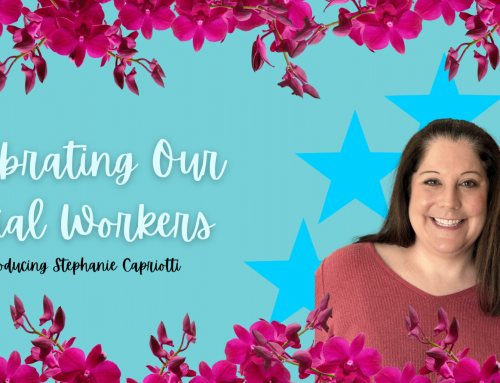A myth associated with adoption is that only newborns are placed with families, but this is far from the truth. AFTH social workers Christian and Isatou emphasize that older children can also be placed by their birth parents. The most important thing when placing a child is their wellbeing, and AFTH will seek out whatever scenario can achieve this.
There are a few differences between placing a newborn and placing an older child, according to Isatou. In cases with older children, social workers prefer to get more background on the child, as well as medical records. Counseling birth parents placing older children is also different. Social workers’ goal is to go over every option with birth parents and help them choose the best one for both them and their child. If a birth parent is looking to place an older child because of financial, mental health or addiction issues, AFTH social workers will help find resources to keep the child with their birth parents.
Although older child placement is possible, it is not the only option birth parents have. Christian highlights the fact that AFTH goes over every possible choice with birth parents, including placing children with family members. Christian spoke about a pair of birth parents he met who were considering placing their older child for adoption, since they could not adequately care for them. The child was living with a family member at the time, and both Christian and the birth parents decided it was best to leave them in that familiar, loving environment.
Another reality some birth parents may face is being pressured by others, such as family members, to parent the child. Isatou mentions that months or years later the birth parent may realize this was not the best decision and wish to place their child for adoption. AFTH can help birth parents in this situation. It is important to emphasize that realizing you are not fit to parent does not make you a bad parent. In fact, seeking out a loving situation for your child only proves how much you care for them.
Open adoption can also go more smoothly with older children. For instance, the name the birth parent gave their child is often kept. Birth parents may also already have bonded with their child, making open adoption visits easier for both parties. On the other hand, it may be harder for birth parents to accept adoptive parents for their child. If this is the case, AFTH can arrange trial visits with the adoptive parents, such as overnight visits or other supervised meetings.
AFTH must emphasize the birth parents that adoption is a permanent decision. Open adoption allows birth parents to keep in contact with their child, but it can still be life altering. Birth parents have options and the decision to place your child is not one that should be rushed. Ultimately, it is up to the birth parents to decide what is best for their child.





